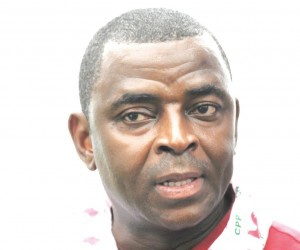The Convention People’s Party (CPP) is frustrated at the missed opportunity that this budget offered on hope for our nation and our people.
Our initial response to the 2014 budget is informed by our vision for Ghana and its people, and how the economy can function to deliver prosperity for all. This requires strategic long-term development planning (the only way to address the recurrent revenue shortfall in a sustainable manner), the building of human capacity, developing our ability to offer fair distribution of opportunities, the lessening of our dependence on external sources and a commitment to self-reliance. Ghana's wealth, the CPP believes, must benefit all Ghanaians.
What the Government has rather sought to do is to consolidate and entrench the despairing gap between the rich and the poor. Nothing in this budget points to dealing with job creation, tax policy to make the rich pay more, measures in education expansion and consolidation, the tidying up of health policy and delivery and a host of measures for other sectors. There’s no hope in this budget for the street hawker, the bright young person who has completed the village school and is stuck there. Where is the so-called shared prosperity?
Why is our government avoiding the use of the UNDP Human Development Indices (HDI) which is a better way of measuring welfare than the now accepted measure of GDP and per capita income? The CPP has greater confidence in the Human Development Indices, which takes into account the quality of health, education, sanitation, and food security.
This budget confirms the position of the Convention People’s Party that for the past thirty two years and counting, our economy has been managed for the benefit of a few Ghanaians, in the interest of the particular party in power, and on behalf of external interests, leaving a vast majority of our people lacking basic social and economic amenities. The needy continue to subsidize and feed the greedy.
The economic growth strategy that has falsely been aimed at inflation targeting, fiscal austerity, price stabilisation, increase in oil and petroleum production as highlighted in this budget are in truth conceived as an economic contraction policy that stifle local economic growth and deepens our economic dependence. Its unspoken objective is to limit the capacity of our governments to make the necessary economic and financial interventions to support the private and public sectors for the production of goods and services to satisfy domestic demand and export.
The CPP is curious to find out why our government pursues a policy of fiscal austerity with consequent high interest rates that are stifling our efforts to create employment. In fact the exchange rate policy of this budget and the proposed completion of the divestiture crusade as are typical in post-1966 Ghana seeks to prop imports and thereby de-industrialize our economy.
The proposed twin institution of Ghana Infrastructure Fund, GIF, and Small and Medium Enterprise Fund, SMEF, for youth soft infrastructure to work and establish businesses is another palliative that may just be a nine-day wonder. It does neither point to a definitive command intervention at youth job creation nor youth mobilisation.
Nothing was said about the National Service Scheme or capital or hard infrastructure to get real jobs created.
It is worth noting that in our CPP 2008 and 2012 CPP Manifestos, the CPP proposed under its broad policy to tackle Ghana’s infrastructure deficit, the establishment of a National Infrastructure Financing Authority (NIFA). We would have expected the government to have acknowledged this policy initiative and consulted the CPP on how best to implement it.
The fascinating thing is that the budget failed to say anything about local content in the oil and gas industry and their ancillary and linked-up developments even though he had the signed document he was made to table post-scriptum of the budget statement. How is the government going to procure the right calibre of skills and personnel to make for the “high” local content? Or is it going to be another lip service.
The 2014 budget lacks any signal or policy initiative or measures to re-orient our economy from one of dependency to genuine self-reliance. There is no policy on industrialization.
This budget has not provided a clear agricultural policy to improve our production. Government has also not said anything about the implication for our farmers, especially small scale food growers, the majority of whom are women, of the imminent passing of the Ghana Plant Breeders’ Bill 2013 that seeks to be compliant with the INTERNATIONAL CONVENTION FOR THE PROTECTION OF NEW VARIETIES OF PLANTS, also known as UPOV 91. This in effect will take away the freedom of Ghanaian farmers to save, share, exchange, sell or grow local organic varieties. They will be forced, instead to buy every year, GMO seeds from multinational agribusiness companies, who will hold Intellectual Property Rights over these GMOs.
A more detailed CPP response will be issued when the CPP Shadow cabinet has finalised its review.
Nii Armah Akomfrah
CPP Director of Communication
General News of Thursday, 21 November 2013
Source: CPP Director of Communication

















